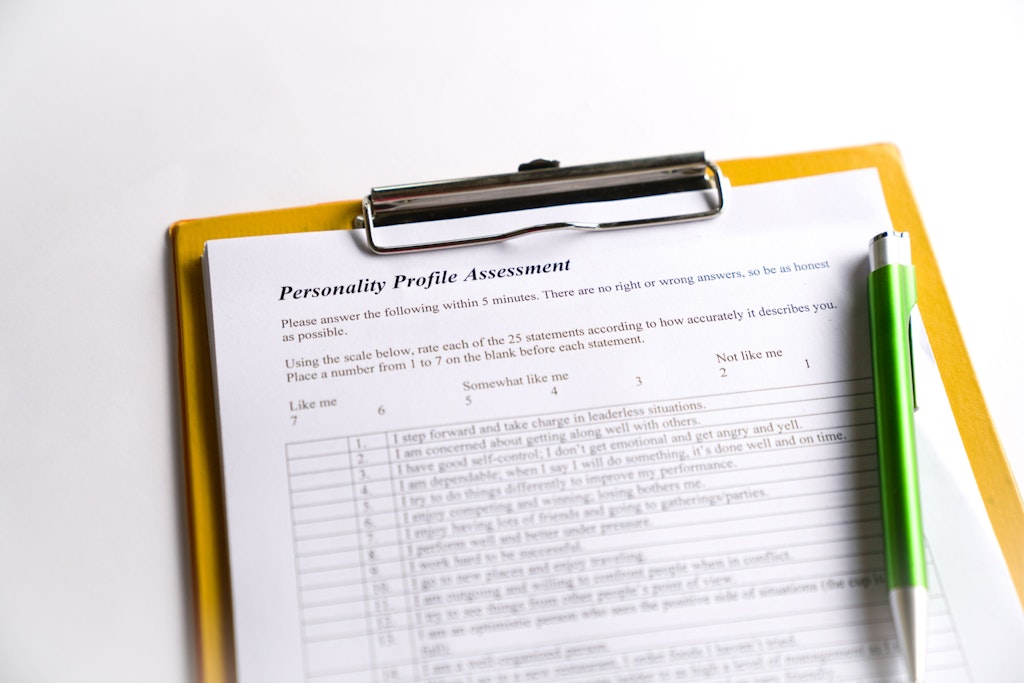Are personality tests a useful recruitment tool?
Last updated on 20 July 2023

Personality tests are seen by some as a highly-accurate recruitment tool while others put them down to nothing more than a pop quiz. But if you’re looking for the right candidate the first time around, could a personality test provide an accurate picture of your next best hire?
How a personality test can help recruitment
- Popular personality tests include the Myers-Briggs Type Indicator, Clifton Strengths, the DOPE Personality Test, the Caliper Profile and DiSC
- Personality tests can assess a number of different personality traits and are often based on self-reporting
- They provide measures of characteristics such as feelings, motivations, attitudes and behaviours
Some employers view personality tests as a must-have recruitment tool, incorporating them into various aspects of their recruitment or onboarding process. It’s seen as an effective way to identify relevant and useful personality traits that are going to influence a person’s suitability and ability to perform in the role.
So how exactly can this help you better assess a candidate instead of a traditional interview?
Pros and cons of personality tests
- Experts believe personality tests are flawed due to an over-reliance on self-reporting
- Research has shown between 30-50% of applicants are not truthful when taking a personality test
- Focusing on specific traits and results could limit the potential for diverse recruiting
Personality tests provide an objective measure of candidates; you won’t have to rely on gut feeling alone. It will also help you dig past the facts and statements presented on a resume, offering a greater perspective into their potential.
Additionally, you’re also comparing candidates on an even playing field. By asking them to fill out the same personality test, they can be assessed not just on experience, but on multidimensional personality traits more or less aligned to the advertised position. This is a great help if you know a role requires traits such as strong interpersonal skills, independent thinking or agreeability.
Although personality tests do have a grounding in science and there’s evidence to suggest their results can positively affect job outcomes, problems with self-reporting are common. Personality tests are effectively measuring our own perceptions of ourselves, meaning there’s plenty of room for bias or flattering results.
Studies have seen participants returning completely different results in tests taken five weeks’ apart, while the results can reduce a complex personality down to basic stereotypes. With an ability to game the system, so to speak, you could have participants responding to suit their perception of what’s needed for the role, not based on their true personality. False results could lead to critical errors in judgement or lengthy delays to the recruitment process if a candidate is hired but leaves soon after due to misaligned values.
Alternatively, you might limit your own views when recruiting based on specific qualities and traits. Yes, there will be some necessary traits for the role, but it’s not everything. You should balance skills and traits during the recruitment process for the best possible outcome.
What’s the right choice?
Like all good things, if you choose to incorporate personality tests into your recruitment process, they should be used as a part of a balanced approach to hiring. You can use it to effectively screen candidates or narrow down shortlists, but it should not be the decisive evidence for saying yay or nay.
Consider using personality tests prior to face-to-face interviews. It can be a great conversation starter as you talk through results and explore those traits in person. Instead of just relying on results you’re using them to dig deeper, judge their accuracy and challenge self-perceptions.
Or you could save the personality tests for later. Use it during the onboarding process to gain insight into an employee’s strengths and weaknesses. This could help you determine what team they are best suited to and whether any additional training and education could help them strengthen their strategic thinking or relationship-building skills.
However you do it, just remember to be flexible. You might find a personality test is beneficial for consumer-focused roles, but not for IT or finance, or certain tests aren’t as accurate. There’s no harm in trial and error when taking a balanced approach to recruitment.